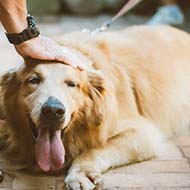New obesity insights to be shared at BVNA Congress

"Nurses play a key role here in providing ongoing owner support." - Dr Libby Sheridan.
New research into obesity management will be delivered by the Purina Institute at the BVNA Congress.
The session will be delivered together with research authors, and will explore the role of behavioural science in achieving pet weight management, with speakers sharing their insight into how nurses can use the findings to support pet owners with weight management.
Behavioural psychologist Dr Thomas Webb and Purina corporate affairs manager Hugues du Plessis will speak on a new research project that advances understanding of how owners beliefs and behaviours are associated with canine obesity.
Attendees will learn how psychology has the potential to aid in understanding owner beliefs and motivations, and how behavioural science can be used to assist pet owners in changing their actions.
Dr Libby Sheridan, Purina scientific affairs manager, will host the symposium. She commented on the usefulness of these insights for veterinary nurses: “Veterinary teams know that successful obesity management depends upon owners changing their habits and routines, but this can be very challenging to achieve.
“Nurses play a key role here in providing ongoing owner support. At Purina we’re delighted to share our latest research to help nurses learn how to do this most effectively.”
Consisting of three twenty minute talks, each followed by a ten minute Q&A session, the symposium will last for 90 minutes, beginning at 11am on Saturday 2 October.
Pre-registration is not necessary for the Purina Institute symposium, but all attendees must have a ticket for the BVNA Congress.
Those interested in attending can sign up for the BVNA Congress here.



 The Veterinary Medicines Directorate (VMD) is inviting applications from veterinary students to attend a one-week extramural studies (EMS) placement in July 2026.
The Veterinary Medicines Directorate (VMD) is inviting applications from veterinary students to attend a one-week extramural studies (EMS) placement in July 2026.